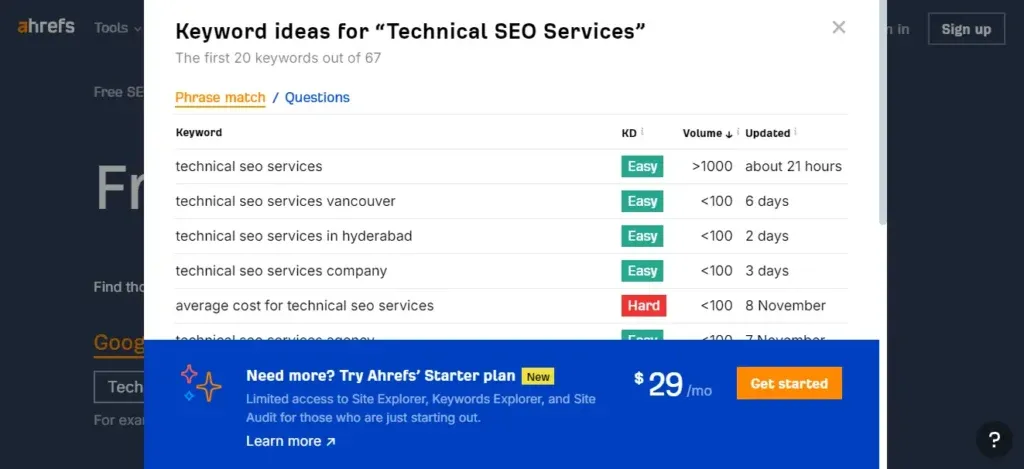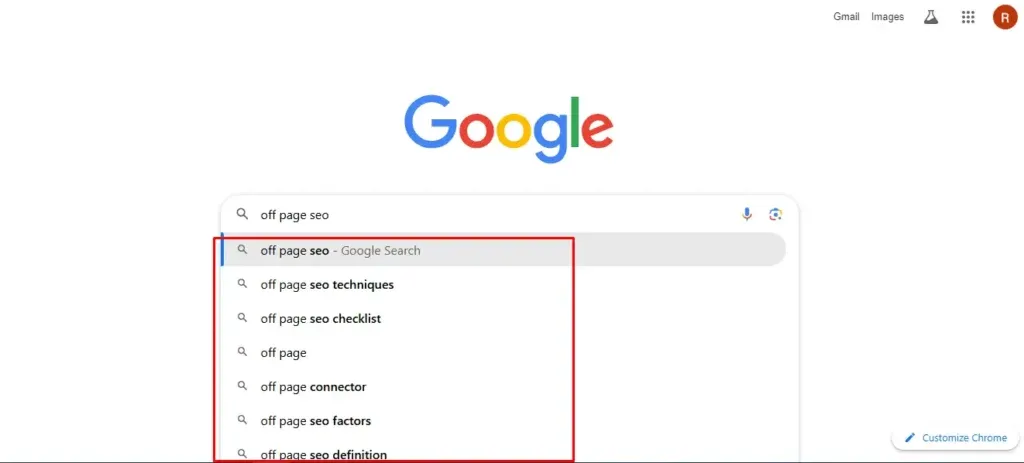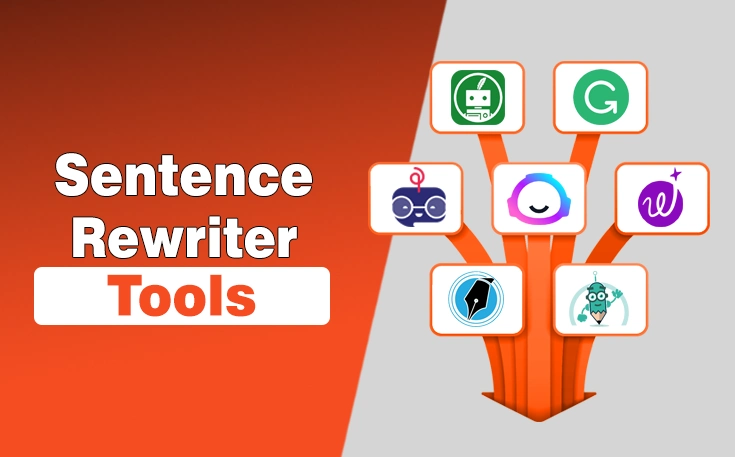Search Engine Optimization is a never ending strategy as it is required at every stage when ranking a site higher in the Google SERP. No matter if you are running a well established website or have recently started a blog, you have to focus on all crucial SEO components, including keyword research to optimize your site completely.
When you target the right topics, the chances of your visibility automatically increase which promises to bring more traffic to your site.
In this guide, I am going to describe how to do keyword research for SEO.
Keyword Research – Overview
Keyword Research is the process of finding words and phrases, shortly called keywords, which are relevant to your niche. While relevancy is a key factor, several others like difficulty and search volume are also there to be considered.
What are Keywords?
As mentioned, keywords are specific terms that are searched by the audience to grab specific sorts of information. Website owners and bloggers target them to write high quality content to educate their audience.
For Example
“Technical SEO Services” is a keyword with a good search volume as calculated by Ahrefs, shown in the image below.

You can create different topics related to this keyword, like the one I have created. “How to Hire Technical SEO Services?” in order to educate the users and provide them with the desired solution.
Why Keyword Research is Crucial?
Below is a precise overview of the importance of keyword research. You should understand them. In this way, you will be able to know why it is necessary to perform it when you start a blog or even run a well established site.
- Boosts Organic Traffic: When you target the right keywords, you can attract more visitors to your website.
- Improves Content Strategy: Keyword research lets you know what your audience is searching for. As a result, you create relevant and engaging content.
- Enhances SEO Ranking: Properly optimized keywords can improve your website’s search engine ranking.
- Increases Conversion Rates: Attracting the right audience with targeted keywords can lead to higher conversion rates.
Important Terms in Keyword Research
Before moving ahead, it would be best to understand important terms used in keyword research. It will simplify the further steps. Here are these important terms.
- Search Volume: It is a calculation of the number of times a keyword is searched on the web on a monthly basis. The higher the volume, the more beneficial the keyword is for your site.
- Keyword Difficulty: Shortly known as KD, it is a measure of how difficult it is to rank in the SERP for a particular keyword. The lower the difficulty, the more will be the chances of achieving higher rankings.
- Short Tail Keywords: These are very general and small search terms, such as “SEO,” “Content Writing” etc. They have a higher search volume but are difficult to rank
- Long Tail Keywords: Long tail keywords are more specific as compared to short tail. For example, “SEO Friendly Content Writing.” Although they have low difficulty, the search volume is also minimal.
Ultimate Goal of Keyword Research
Based on the terms I have explained in the previous section, the ultimate goal of the keyword research is to find the keywords that have:
- Low difficulty
- Higher search volume
- Are long tail keywords
How to Do Keyword Research for SEO?
In the under section, I have mentioned a step by step guide on how to do keyword research for SEO. Keep the previous discussion in mind to understand all the steps comfortably.
Research on Your Own
Firstly, you have to research on your own regarding your niche to find the keywords people usually search for. For example, if you are running an SEO agency, it is easy to understand that people are looking for solutions like Off Page SEO, On Page SEO, Technical SEO, and Backlinks.
Thus, you can write appealing content on them and perform clustering to cover these keywords from every aspect.
Additionally, you can get help from Google Search suggestions to find the topics that are relevant to the one you are targeting currently.

Use Different Tools
A large number of SEO tools are present on the web that can help you in keyword research. I am also using many to do keyword research alongside following essential White Hat SEO tactics.
The following are the most popular ones which help you in finding the best keywords for your website or blog.
- Ahrefs: Enables you to find low KD keywords
- Semrush: Gives insights into the High CPC Keywords
- Keywords Everywhere: Lets you find High Volume keywords
- UberSuggest: Helpful for finding Long Tail Keywords
- Moz: Best for overall keyword research
Analyze Keywords Your Competitor is Ranking For
Next, you can use tools like Ahrefs and Semrush to analyze the keywords of your competitors on which they are ranking in the SERP. It will give you an idea of how to find relevant topics from the ones you have already published on your site.
In this way, you can make your way to stay in the competition loop and get over the critical challenges.
Determine Relevancy and Search Intent
Relevancy and search intent are the most important factors to consider when performing keyword research. I can help you understand this with examples.
- Relevancy: As WebTechSolutions is an SEO agency, me and my team publish contents related to different aspects of SEO. This is called relevancy. What if I start writing about pets on an SEO blog? Sounding weird? Definitely! That’s what you have to avoid.
- Search Intent: The search intent of the keyword also matters. It is very difficult to rank promotional content on an informational keyword. For example, search results for the keyword “off page SEO” showcase that it features informational intent. Therefore, it should not be treated as promotional.
Use Keywords Properly
Till the previous step, I have covered the complete guide on keyword research. Lastly, I have mentioned the ways you have to use keywords for optimal results. Here are the important sections where you should place them.
- Title Tags: Include primary keywords in your page titles.
- Headings (H1, H2, H3): Use keywords in your headings and subheadings.
- Meta Descriptions: Write compelling meta descriptions with keywords.
- URL Structure: Create SEO-friendly URLs with keywords.
- Image Alt Text: Use keywords in your image alt text for Image SEO.
Advanced Keyword Research Techniques
While the above mentioned basic tactics help you a lot, it is also necessary to focus on advanced keyword research techniques. As a result, you can resonate with the pace of the modern world to head to the desired results.
Voice Search Optimization
With the rise of voice search, you should target voice queries and optimize your content for them to gain more traffic.
- Natural Language: Use conversational language that matches how people speak.
- Long tail Keywords: Focus on longer, more specific queries.
Semantic Search
Next, you have to understand the context and intent behind search queries. In this way, you can cover the keyword and relevant topics from every aspect.
- Content Clusters: Create clusters of related content around core topics.
- User Intent: Match your content to the user’s search intent (informational, navigational, transactional).
Final Thoughts
These are the details about how to do keyword research for SEO. I have mentioned all the steps you have to follow to make sure that you can find the right keywords that match your niche and improve your chances of getting a high SERP ranking in Google results.
Furthermore, you have to understand the functioning of the right SEO tools to check different metrics of keywords like difficulty, search volume, intent, and CPC. Lastly, if you focus on advanced techniques besides these basic tactics, you can pave the ultimate way to desired outcomes.





